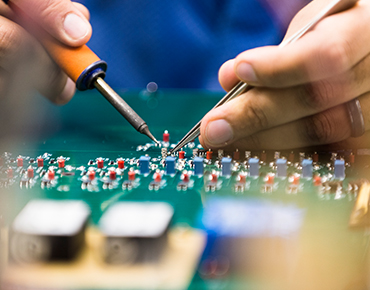
Today’s smartphones and tablets provide consumers unparalleled mobile computing capability.
Yet, these and many other technologies are critically dependent on sophisticated new materials that can solve challenges in areas ranging from clean energy and national security to human health and well-being. And currently, a new material’s journey from discovery to commercial product typically takes as long as two decades.
With expertise in manufacturing; materials science, engineering and processing; and computer science and engineering, UW-Madison is tackling today’s materials challenges through the interdisciplinary Wisconsin Materials Institute (WMI). In fact, the White House named the UW’s WMI a partner institution in its Materials Genome Initiative for Global Competitiveness, a national effort to double the speed with which the country discovers, develops and manufactures new materials.
WMI provides infrastructure for researchers in such areas as mathematics, statistics, computer sciences, information science, chemistry, medicine and engineering, and create synergy among materials researchers at UW-Madison and elsewhere.
“This institute serves a national need in bringing together leaders in these various fields and to produce the means to design new materials, as well as to invent processes needed to synthesize and characterize them,” says Thomas Kuech, the Milton J. and A. Maude Shoemaker and Beckwith-Bascom professor of chemical and biological engineering at UW-Madison.
Kuech co-directs WMI with Dane Morgan, the Harvey D. Spangler professor in materials science and engineering at UW-Madison.
“Discovering new materials is an increasingly interdisciplinary process, requiring access to advanced computer simulations, large databases and a multitude of sophisticated tools for synthesis and characterization,” says Morgan. “Developing integrated multidisciplinary teams to tackle all these components is critical to accelerating our rate of materials innovation.”
Ultimately, WMI discoveries will help broaden the palette of advanced material discoveries within the United States. “UW-Madison plays a major role in innovation and spin-off companies and this institute will provide a broader base to accelerate that innovation,” says Kuech.
